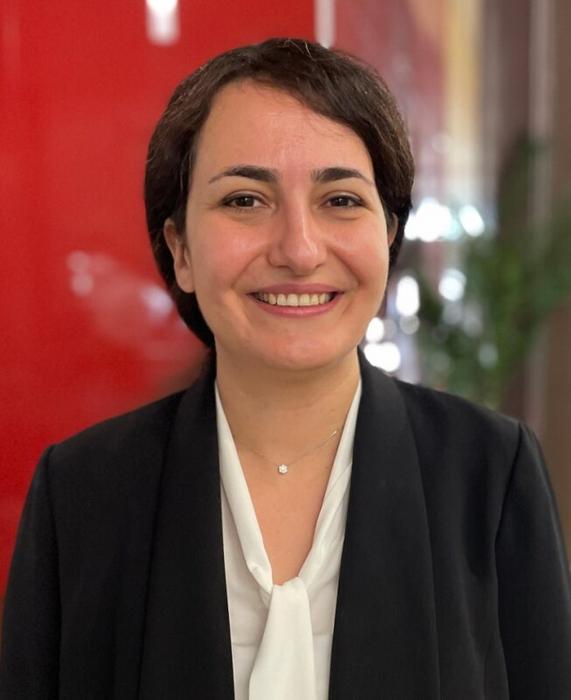Norman, OK – Talayeh Razzaghi, an assistant professor of industrial and systems engineering at the University of Oklahoma, has been awarded a Faculty Early Career Development Program award from the National Science Foundation for her work titled “Personalized Maternal Care Decision Support System for Underserved Populations.”

Credit: University of Oklahoma
Norman, OK – Talayeh Razzaghi, an assistant professor of industrial and systems engineering at the University of Oklahoma, has been awarded a Faculty Early Career Development Program award from the National Science Foundation for her work titled “Personalized Maternal Care Decision Support System for Underserved Populations.”
Known as a CAREER award, Razzaghi was awarded $496,732 to research machine learning-based clinical decision support tools for early preeclampsia detection in maternal healthcare research.
Preeclampsia, a pregnancy complication characterized by high blood pressure, affects 8-10% of pregnancies in the United States annually and poses significant risks to maternal and neonatal health if left untreated. Despite its prevalence, identifying women at higher risk of developing preeclampsia remains challenging due to various contributing factors, including age, race and pre-pregnancy health conditions.
“Our research will address these challenges head-on by using cutting-edge machine learning algorithms to analyze diverse datasets and predict the likelihood of preeclampsia during pregnancy, particularly among underserved minority populations,” Razzaghi said. “The research will focus on mitigating biases inherent in existing predictive models, which often overlook the unique healthcare needs of communities of color.”
Razzaghi adds that the staggering rise in maternal mortality rates in the U.S. over the past two decades demands action. “Through our research, we aim to harness the power of machine learning to provide personalized, equitable maternal care and reduce disparities in maternal health outcomes.”
The approach includes the development of machine learning-based predictive models that are scalable for learning from large-scale healthcare data and yield fair classifiers that balance accuracy and fairness across racial subpopulations. By tackling these technical challenges, Razzaghi hopes to enhance the identification of pregnant women at high risk of preeclampsia while promoting fairness in maternal health management systems.
“This research has far-reaching implications beyond preeclampsia detection,” Razzaghi said. “By understanding and addressing the complex interplay of social determinants of health, we can apply these insights to other pregnancy-related diseases and even non-clinical factors such as socioeconomic status.” She adds that her CAREER award also will focus on a recruitment and research internship program that involves the inclusion of underrepresented students in STEM fields.
Collaborating with clinical partners at the OU Health Sciences Center, Texas Tech Health Sciences Center and the University of Pittsburgh, Razzaghi has access to diverse datasets crucial for training and validating the machine learning models. However, she acknowledges the challenges of accessing sensitive healthcare data and emphasizes the importance of responsible data usage and privacy protection.
“We are committed to upholding the highest standards of data ethics and privacy throughout this research,” Razzaghi said. “Our goal is to advance scientific knowledge and improve healthcare outcomes while respecting the privacy and confidentiality of patient information.”
Learn more about Razzaghi’s research.
###
About the Project:
The project, titled “Personalized Maternal Care Decision Support System for Underserved Populations,” begins Aug. 1, 2024, with funding expected through July 31, 2029. The project is funded by the Info Integration and Informatics Program in the National Science Foundation as part of award #2339992
About the University of Oklahoma:
Founded in 1890, the University of Oklahoma is a public research university in Norman, Oklahoma. As the state’s flagship university, OU serves the educational, cultural, economic and health care needs of the state, region and nation. OU was named the state’s highest-ranking university in U.S. News & World Report’s most recent Best Colleges list. For more information, visit ou.edu.



